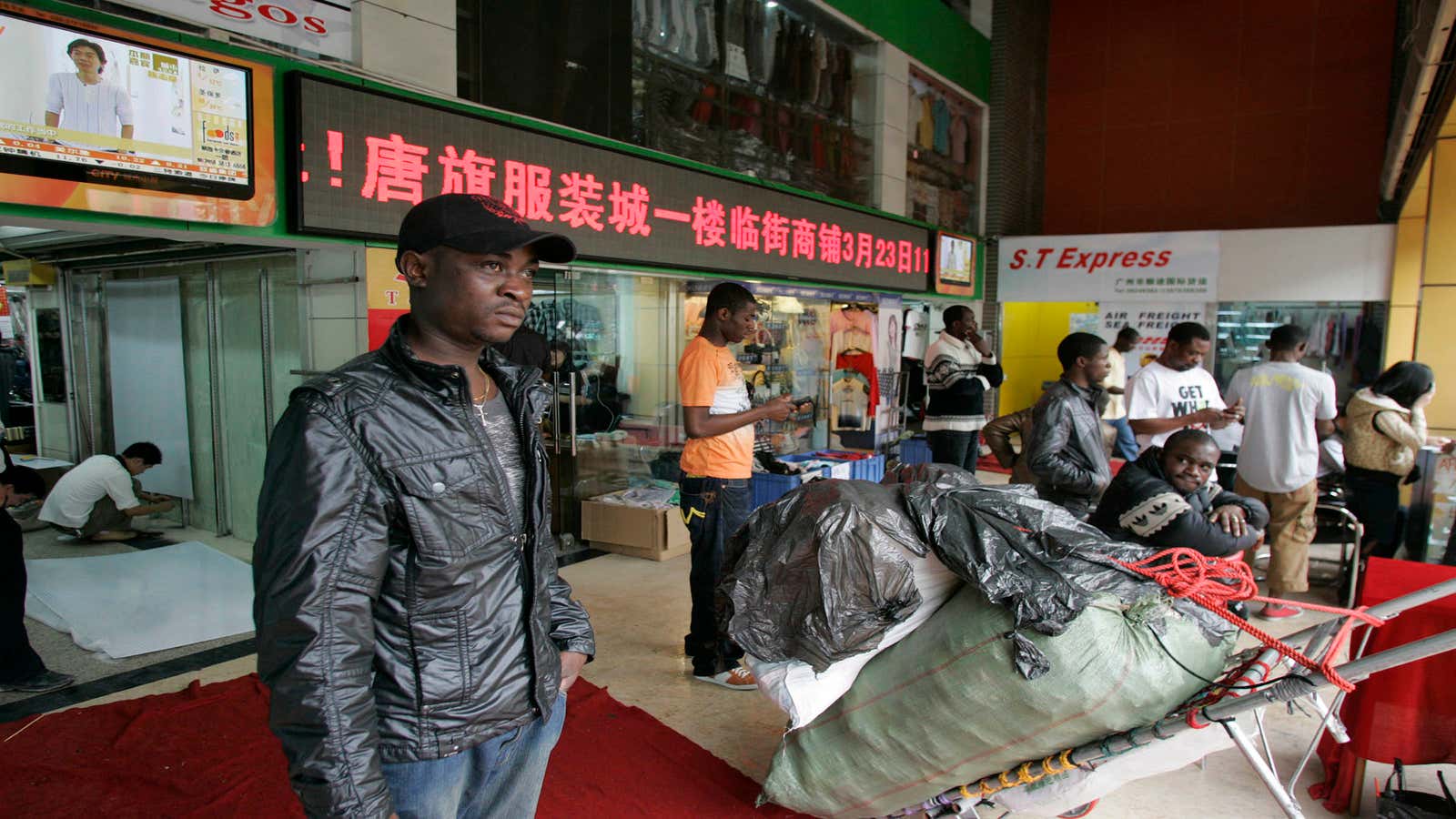When citizens of Ebola-hit West African countries land in the Chinese city of Guangzhou, they are asked to alight the airplane before other passengers, submit themselves to a health check, and report their health status twice daily for the next 21 days, and they are restricted to staying in just one hotel, Voice of America reports.
So far, 90 people from Sierra Leone, Guinea, Liberia, and the Democratic Republic of Congo have had to check in at the Hotel Canton, a state-owned establishment in which a full five floors have been cleared for foreigners, doctors, and security officers perceived to be at risk of Ebola. Their stay is free of charge and guests are able to travel around the city as they please, but they must carry a GPS-enabled mobile phone at all times.
For most of the world outside West Africa, nervousness about Ebola has receded, and large-scale measures to protect public health are generally met with skepticism. Still, in Guangzhou, which lies just 25 km (15 miles) from the global epicenter of the 2002 SARS outbreak that killed more than 8,000 people, it’s perhaps understandable that local officials are cautious.
But the concern of Guangzhou bureaucrats may have more to do with the racial makeup of the part of town referred to by some as “Little Africa,” or “Chocolate City”—a 10-square-kilometer (4-square-mile) district that is home to an estimated 16,000 Africans, by some estimates the largest African population in Asia.
A high population of Africans is of course no reason to start worrying about an Ebola outbreak, but for a country as unfamiliar with immigrants as China (it gives out just 248 green cards per year, compared with 50,000 issued by the US green card lottery alone), and with its history of holding other foreigners at bay, the measures are unfortunately not surprising.
